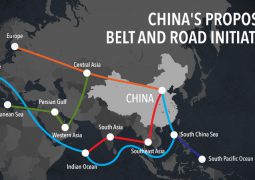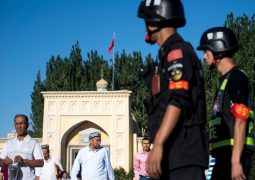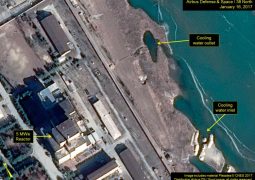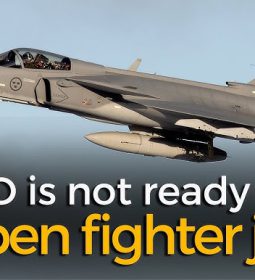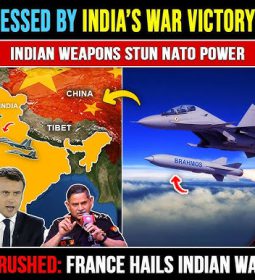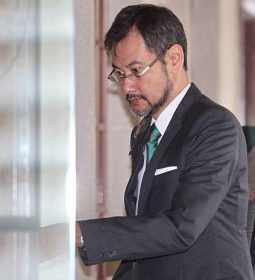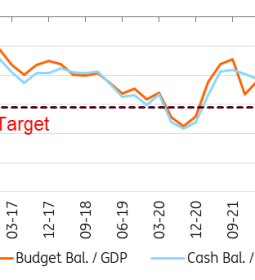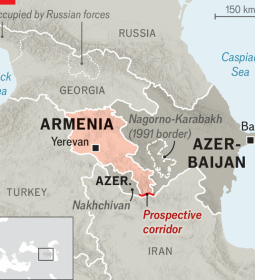Will 47th US President help fmr Pak PM: Trump’s incoming envoy raises hopes of a ‘free Imran Khan’

US-Pakistan ties have historically been marked by distrust, intermittent strategic alliances and periods of relative indifference.
President-elect Donald Trump’s incoming administration will take office next month but it’s already sparked fresh speculation on how the Republican-led government may recalibrate the US approach to Islamabad after years of indifference during Joe Biden’s administration.
Richard Grenell, Trump’s newly appointed envoy for special missions, has been at the forefront of the rhetoric through his words of support for Pakistan’s imprisoned former Prime Minister Imran Khan.
Statements from Grenell, primarily on social media platform X, are causing a stir among Pakistan’s governing elite.
Privately, several leaders from Imran Khan’s Pakistan Tehreek-e-Insaf (PTI) party told Middle East Eye that the expectation of potential support from the incoming Trump administration has put pressure on the Pakistani government and its military.
“Several factors, including the persistent protests by party supporters and fears of external pressure from the incoming US administration, amplified by the efforts of the party’s overseas chapter in the US, have compelled the government to initiate meaningful dialogue with us,” said a PTI core committee member in the capital Islamabad, who requested anonymity to speak freely.
On Monday, the first formal meeting between a government-appointed committee and PTI representatives took place in Islamabad, signalling a potential shift in the political deadlock.
The stir was triggered by posts where Grenell criticised Pakistan’s treatment of Khan, who was ousted in April 2022 through a parliamentary no-confidence vote following a fallout with the country’s influential military.
On 26 November, Grenell tweeted “Release Imran Khan!” in response to a violent crackdown in Islamabad against PTI supporters demanding Khan’s release.
Khan’s legal troubles, resulting in over a year of incarceration and a crackdown on his party supporters, remains a contentious issue in Pakistan’s fragile democracy.
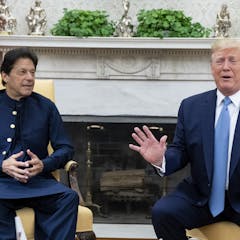
Initially drawing limited attention, Grenell’s statement gained momentum after Trump announced Grenell’s role as special envoy for global missions on 15 December. PTI supporters amplified Grenell’s message, deepening the debate over his influence.
Geo News, a major Pakistani channel often aligned with Prime Minister Shehbaz Sharif’s government, ignited further controversy by introducing Grenell’s sexual orientation into the discussion.
A headline on X read, “Trump appoints homosexual Richard Grenell as special envoy”, prompting Grenell to reaffirm his stance on 16 December.
He reiterated, “I’ll say it again. Free Imran Khan”, highlighting the traction his original tweet, viewed 12 million times, had received.
Grenell’s tweets were followed by a number of posts from lawmakers in the US, including Democratic Congressman Ro Khanna who filmed a video to elaborate on the former cricketer-turned-politician’s plight.
“This is bipartisan. We need to not recognise the rigged election in Pakistan and the new government. We need new elections in Pakistan and Imran Khan needs to be out of jail,” Khanna said in a video posted to X.
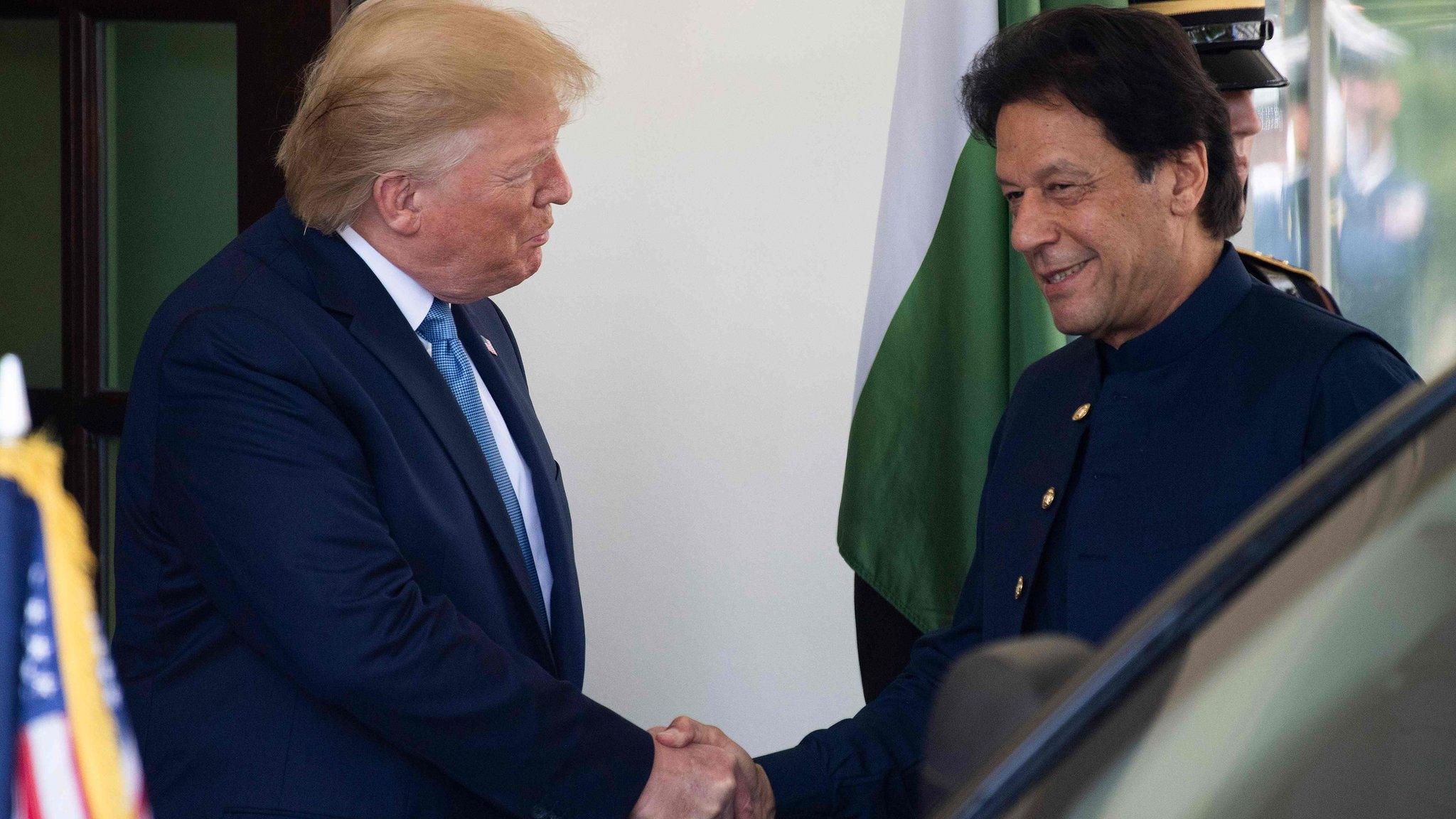
On Monday, Grenell urged X’s owner Elon Musk, to extend Starlink satellite internet services to Pakistan. His request touched a nerve there, given the lack of reliable internet access in a country grappling with censorship and a ban on X itself, largely tied to the crackdown on Khan’s supporters, who wield outsized influence on social media platforms.
Grenell, a seasoned foreign policy adviser, has held several critical roles during Trump’s first administration, including US ambassador to Germany, Special Envoy for Serbia and Kosovo Peace Negotiations, and Acting Director of National Intelligence. His actions now place him at the centre of an evolving narrative on US-Pakistan dynamics and Islamabad’s democratic trajectory.
US influence in Pakistan
In Pakistan, a widespread belief persists that Washington holds significant sway over the country’s political landscape and its fortunes.
Historically, the US has played a critical role in shaping Pakistan’s foreign and security policies, a notion frequently echoed by political analysts. That belief was amplified when Khan, after his ousting, accused the US of orchestrating his removal – a claim that resonated strongly with his supporters.
Now, with Trump re-entering the political arena, many of Khan’s followers are hopeful that American influence could extend to advocating for Khan’s release from jail, further fuelling perceptions of US involvement in Pakistan’s domestic affairs.
Although the PTI leadership has not officially commented on Grenell’s tweets supporting Khan, many leaders and analysts believe that remarks from a close confidant of Trump could signal a shift in Khan’s fortunes after Trump assumes office on 20 January.
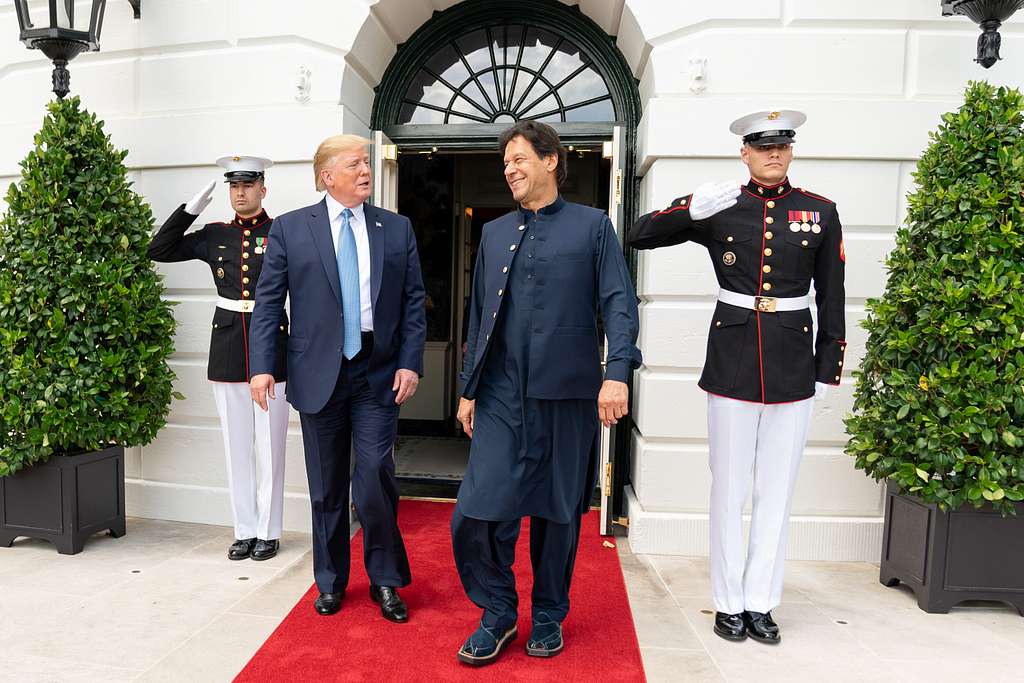
Following Trump’s victory in the US presidential election in November, a tweet from Khan’s official X account congratulated him, acknowledging the American people’s will “held against all odds”. The tweet added: “We hope he will push for peace, human rights, and democracy globally.”
Khan, currently in jail, has his official X account managed by party representatives.
However, PTI leadership, including Khan’s sister Aleema, has vehemently rejected the notion that the party is relying on Trump for Khan’s release.
“Are we slaves? Is Trump our Abba [father]? Are we a US colony?” Aleema responded sharply last month to journalists suggesting PTI leaders were pinning hopes on Trump’s victory as a pathway for Khan’s release.
Aleema and other leaders said that the PTI is pursuing its struggle through state institutions, like the judiciary and parliament, while also exercising its right to peaceful protests.
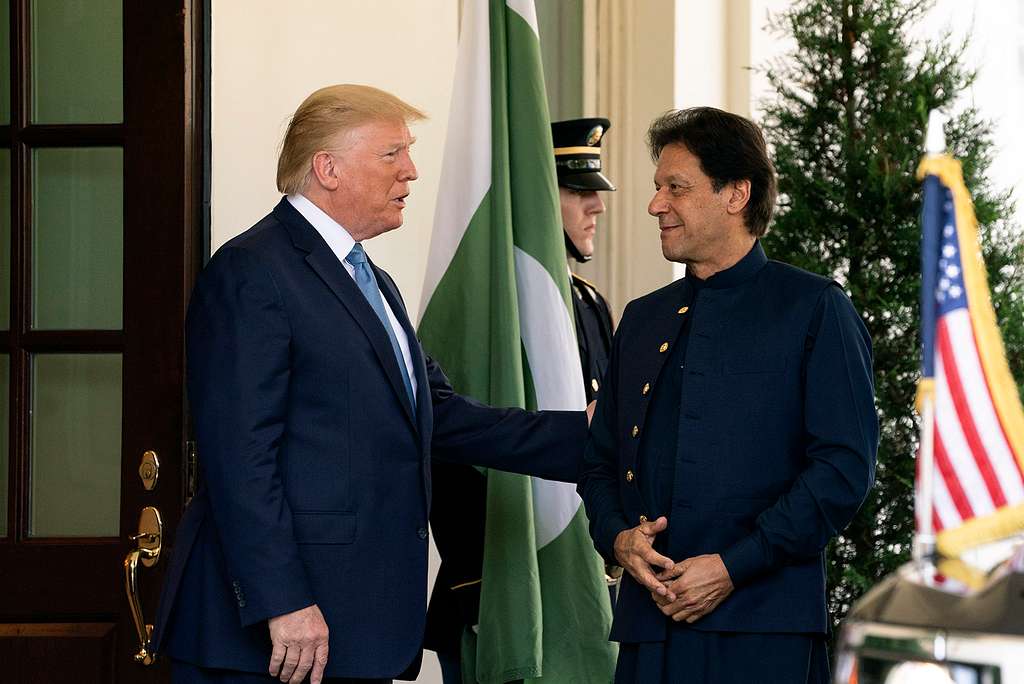
But the political climate grew more tense when, on Sunday, a military court sentenced 25 PTI activists to rigorous imprisonment for their involvement in the 9 May riots, which included attacks on military installations.
The move drew a sharp response from the US State Department on Tuesday, expressing “deep concerns” over the use of military courts, citing concerns over their lack of judicial independence, transparency and due process.
Diaspora dynamics
The role of Pakistan’s diaspora in shaping political narratives has never been more evident, experts say.
Recent tweets by Grenell highlight the growing prominence of this community in the context of Pakistan’s ongoing political tensions. Grenell’s social media activity aligns with the “battles of hopes” between Pakistan’s military and the PTI, analysts suggest.
‘PTI is working to instill hope in its supporters, suggesting that Khan’s release could be facilitated after Trump takes office’
– Qamar Cheema, Sanober Institute
“The military is actively trying to quash any hope among PTI supporters regarding Imran Khan’s release, emphasising that he will face punishment for allegedly inciting last year’s violence and corruption charges,” Qamar Cheema, executive director at the Sanober Institute, an Islamabad-based think tank specialising in foreign affairs, told MEE.
“Meanwhile, PTI is working to instill hope in its supporters, suggesting that Khan’s release could be facilitated after Trump takes office.”
Grenell’s social media activity has increasingly focused on Pakistan, sparking discussions about the influence of PTI supporters abroad.
“His tweets are a testament to the connectivity and influence of Pakistan’s diaspora, which predominantly aligns with PTI,” said Fayaz Naich, a Pakistani journalist, currently based in Washington DC, who studies Pakistan-US ties extensively.
Although Trump himself has refrained from commenting on Pakistan’s internal affairs, Grenell’s interactions with Pakistani diaspora bodies, such as the Pakistani American Public Affairs Committee, underscore the diaspora’s growing political clout.
“Grenell’s tweets reflect his proximity to PTI supporters,” said Ayesha Siddiqa, a Pakistani political analyst currently based in London.
She pointed out that since 2001, the Pakistani diaspora in the US has evolved into a politically engaged and influential community.
“Most of the diaspora are well-off professionals or entrepreneurs, part of the post-9/11 generation whose identity remains deeply tied to Pakistan,” she noted. “This demographic has not only maintained strong connections with Pakistan but has also actively engaged in its political discourse.”
Trump, Pakistan and the battle for relevancy
Grenell’s recent tweets, while ostensibly personal, carry the implicit weight of his association with Trump, which could have a tangible impact on Pakistan’s political landscape.
Experts suggest these remarks hint at enduring complexities in US-Pakistan relations under the incoming administration, echoing the unpredictable nature of Trump’s foreign policy during his first term.
Trump’s relationship with Pakistan was marked by volatility. In January 2018, he accused Pakistan of giving the US “nothing but lies and deceit” while harbouring “terrorists”.
However, ties improved after Khan’s election in July that year, with both leaders finding common ground on Afghanistan peace talks.
“Trump’s foreign policy has always been transactional,” said a senior official in Pakistan’s foreign ministry, noting that Trump’s stance softened when cooperation in Afghanistan served US interests.
The official added that Grenell’s tweets blur the lines between public posturing and actual policy, a hallmark of Trump-era diplomacy.
Cheema suggested Grenell’s tweets could be part of a broader public relations campaign. “Typically, serious concerns are communicated through formal statements, not informal tweets,” he told MEE, emphasising that official statements from institutions like the US State Department or Department of Defense carry far more weight.
“In Grene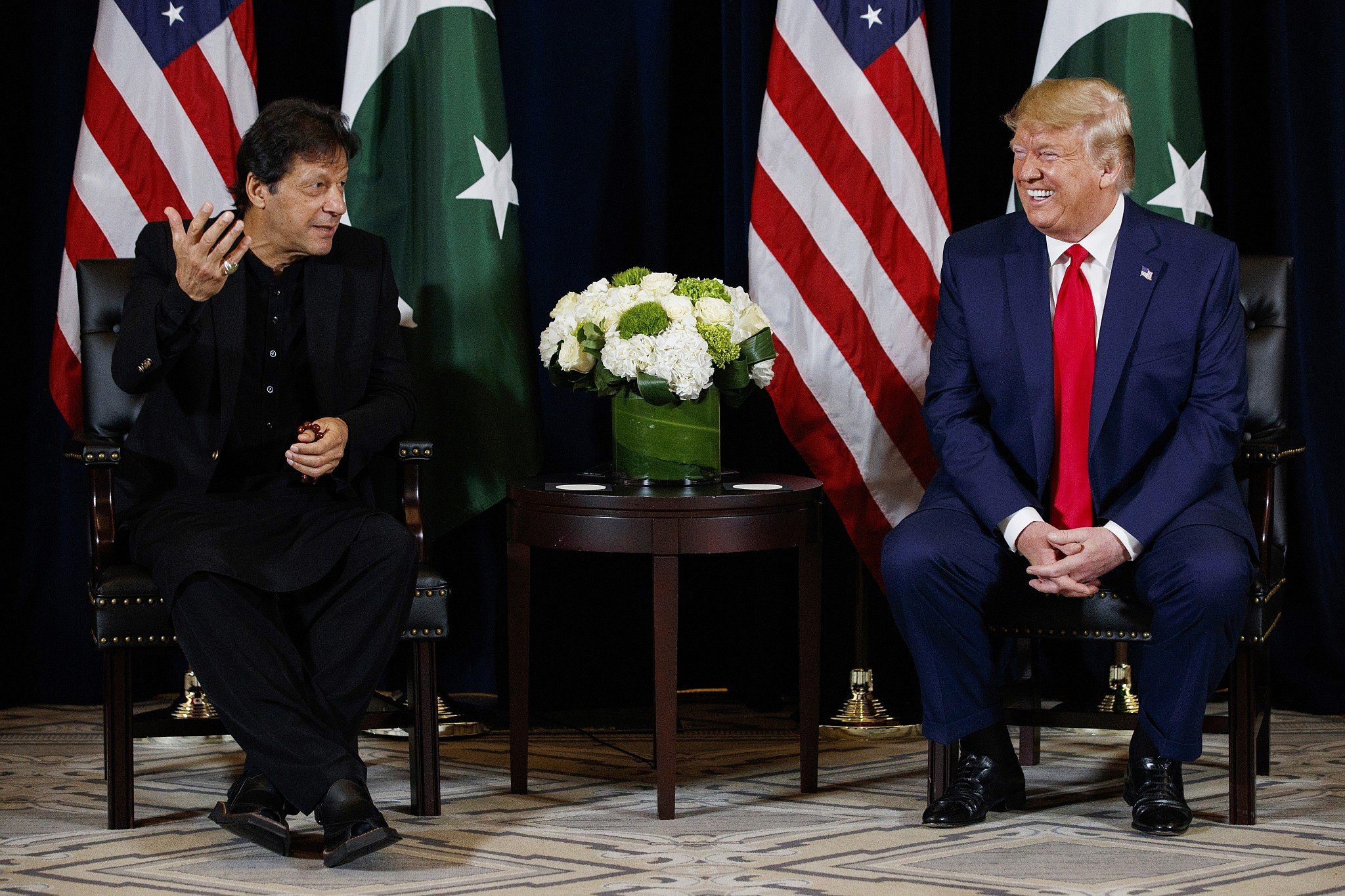 ll’s case, the series of tweets appears informal, reflecting a certain lack of seriousness,” he said.
ll’s case, the series of tweets appears informal, reflecting a certain lack of seriousness,” he said.
Despite this, Siddiqa argued Grenell’s comments should not be dismissed outright. She stated that Pakistan’s global image is already under scrutiny, with recent concerns from the UK, US and European Union over the trials of PTI supporters in military courts reinforcing perceptions of undemocratic governance.

As Grenell’s tweets hint at potential shifts in US policy, experts agree that any future Trump administration would inherit a strained US-Pakistan relationship shaped by counterterrorism concerns, economic challenges and regional politics.
Last week, the United States announced it was imposing new sanctions related to Pakistan’s long-range ballistic missile programme, including the state-owned defence agency that oversees the programme.
But Pakistan’s geopolitical relevance remains a topic of debate. While some argue its strategic importance has diminished after the US withdrawal from Afghanistan, others point to its location bordering China, India, Iran and Afghanistan as evidence of its ongoing significance.
Naich said that a Trump administration would likely focus on pressing foreign policy challenges, including China, the Ukraine war and the Middle East crisis.
“Pakistan will remain relevant in US foreign affairs, largely due to its ties to China and Iran,” he said.
- Previous Afghan Taliban vow to retaliate after Pakistani air strikes kill at least 46
- Next Somali’s head Hassan Mohamud Visits Eritrea for Talks





